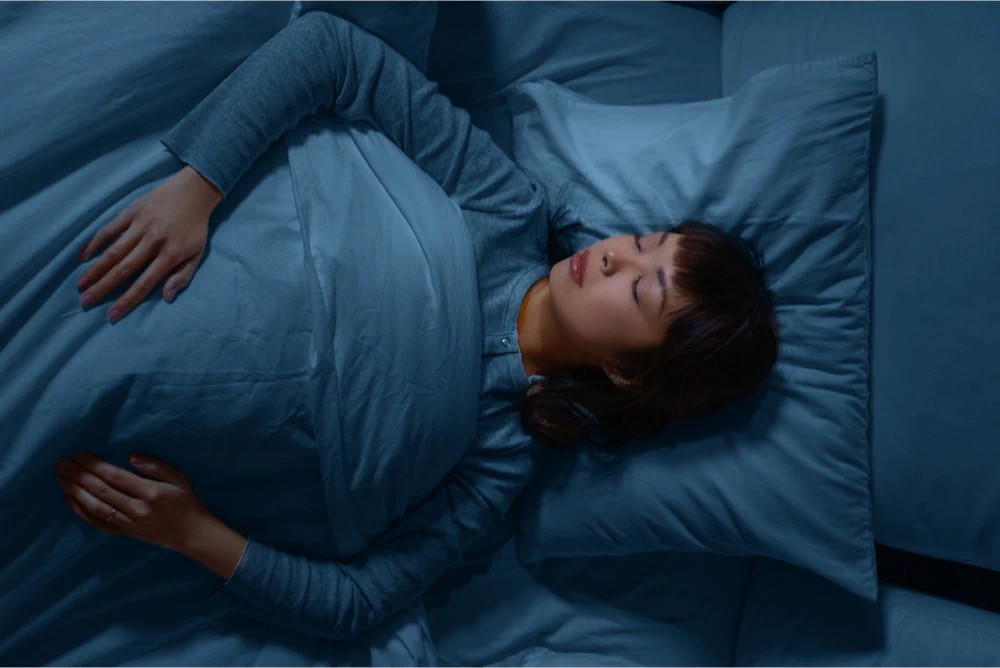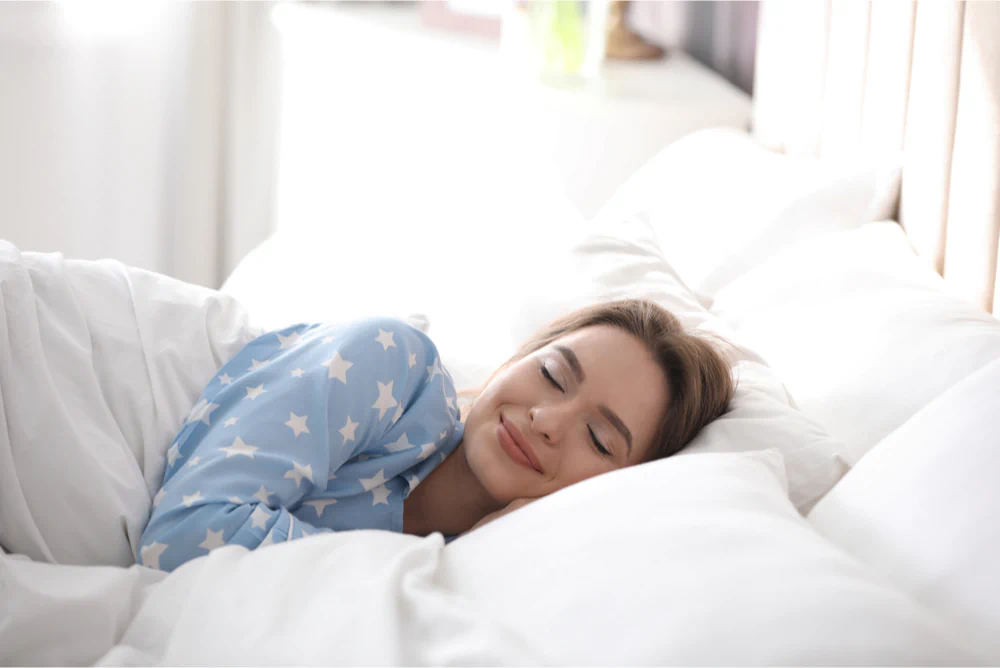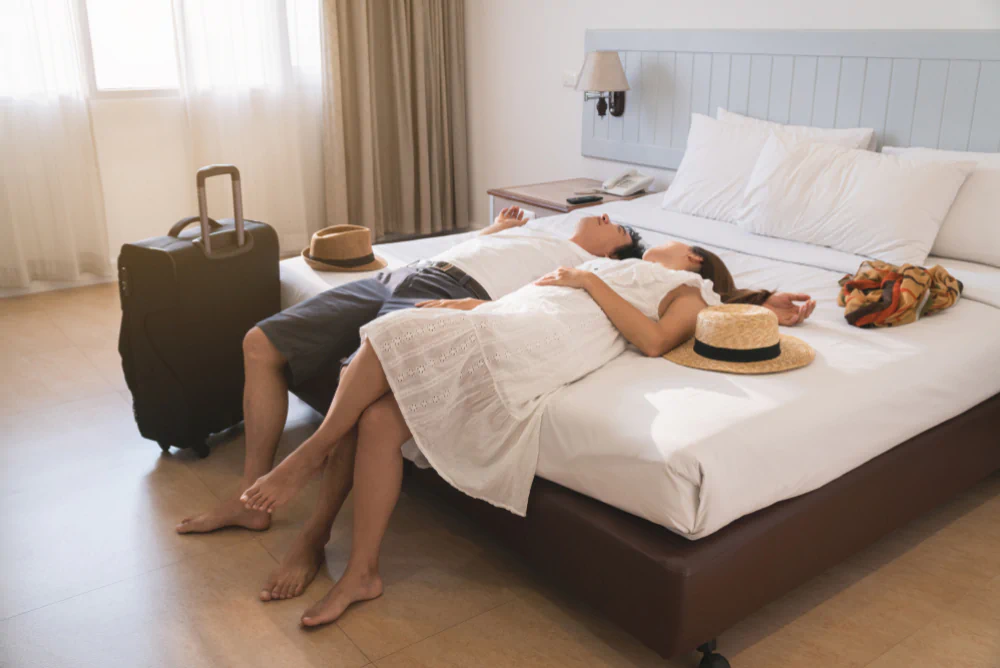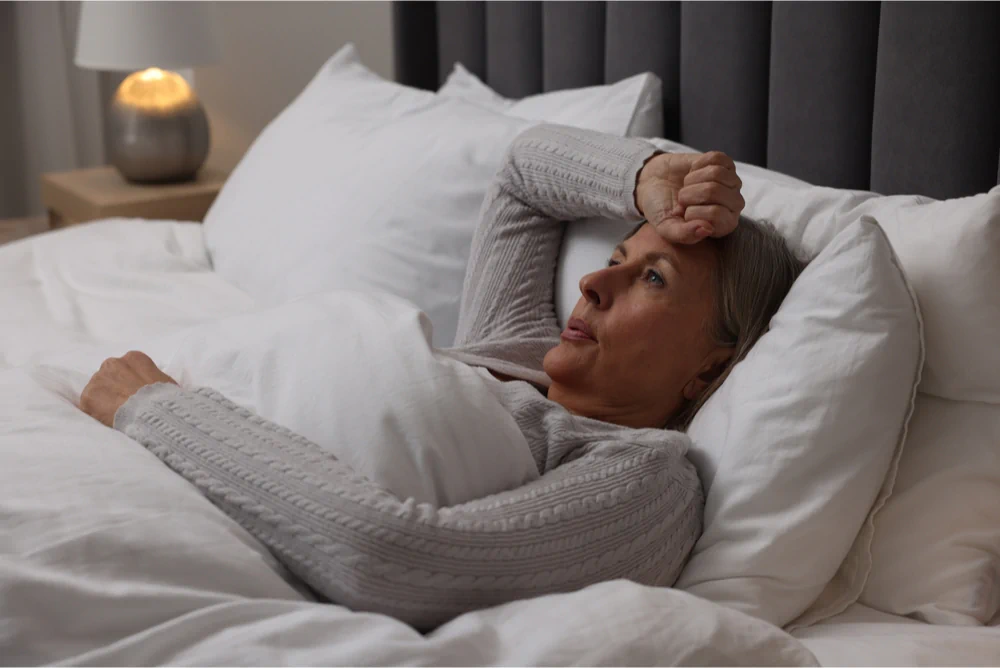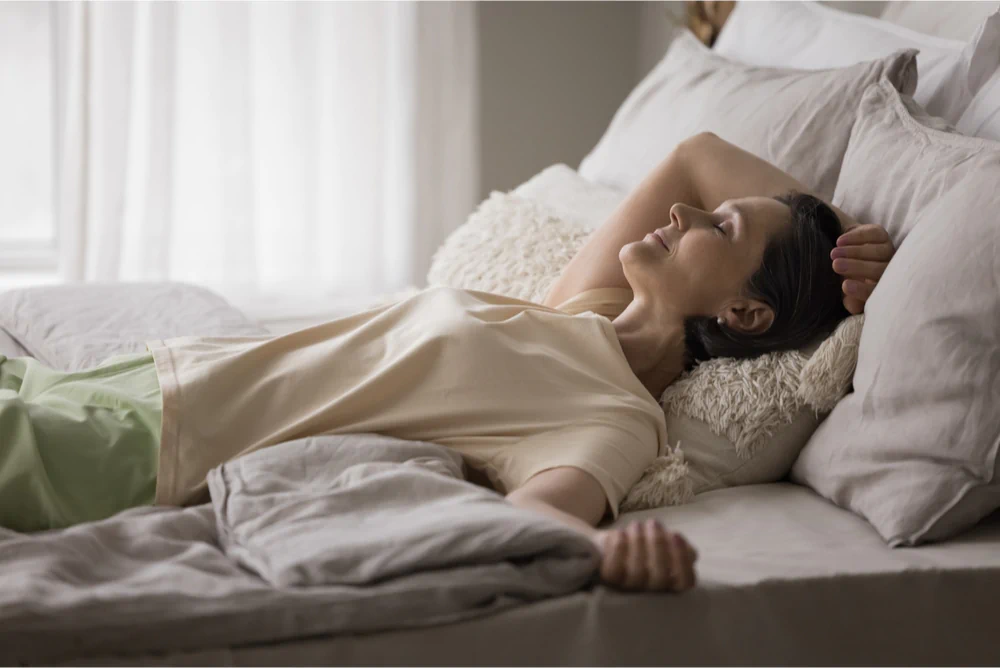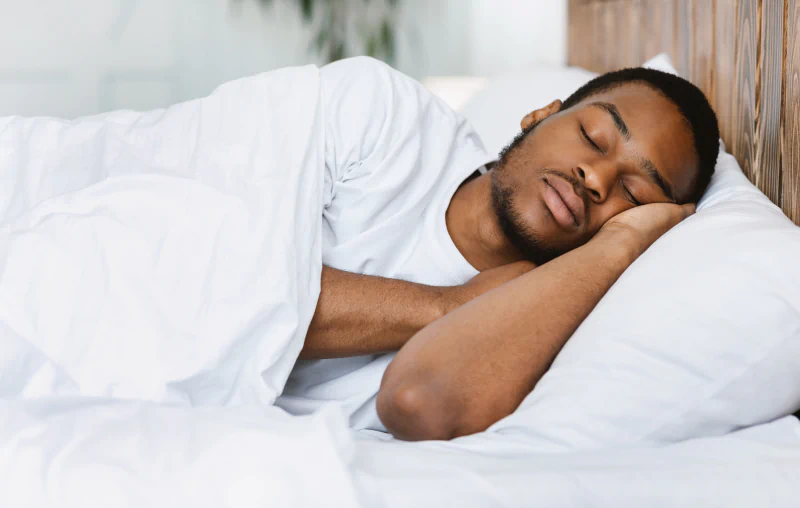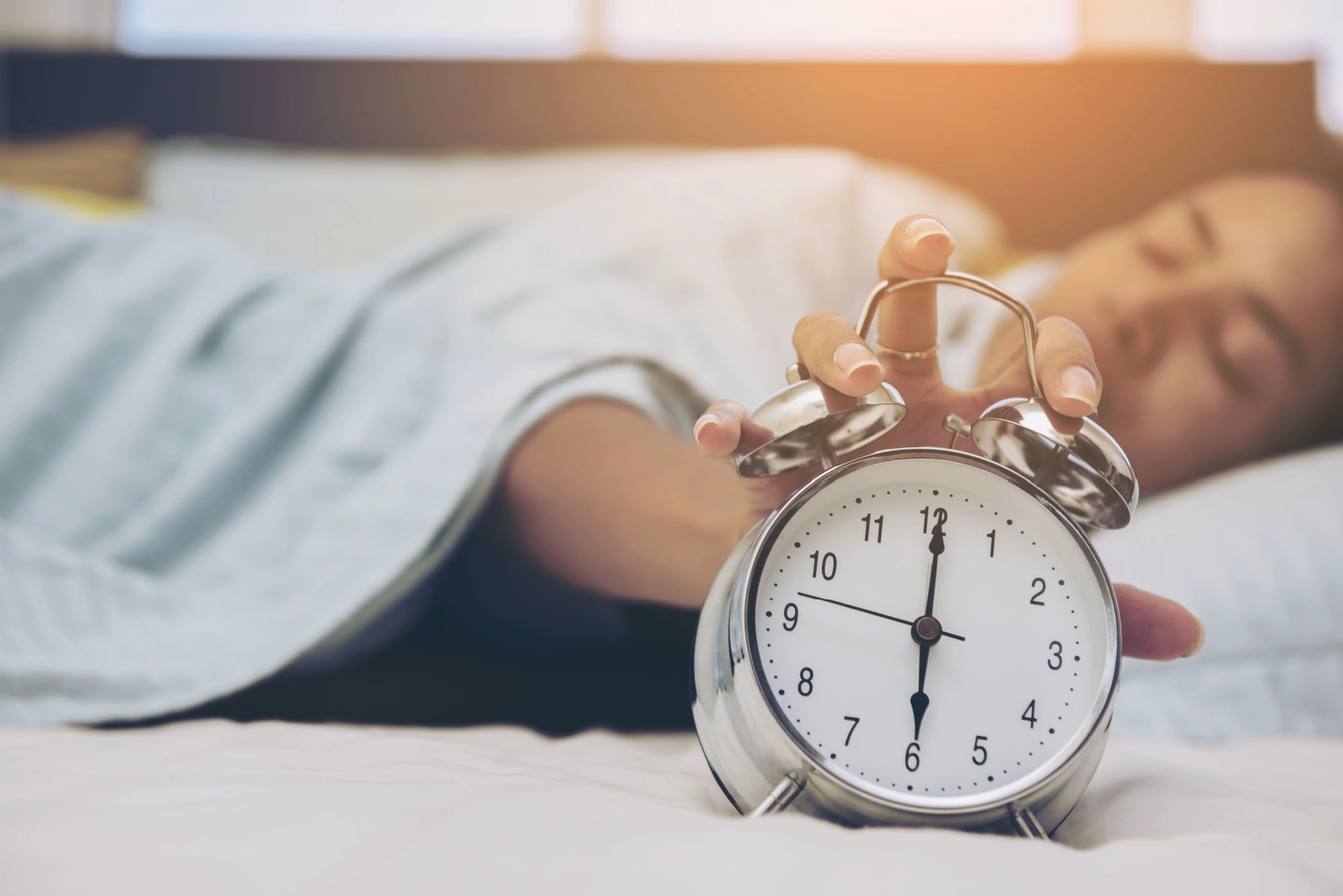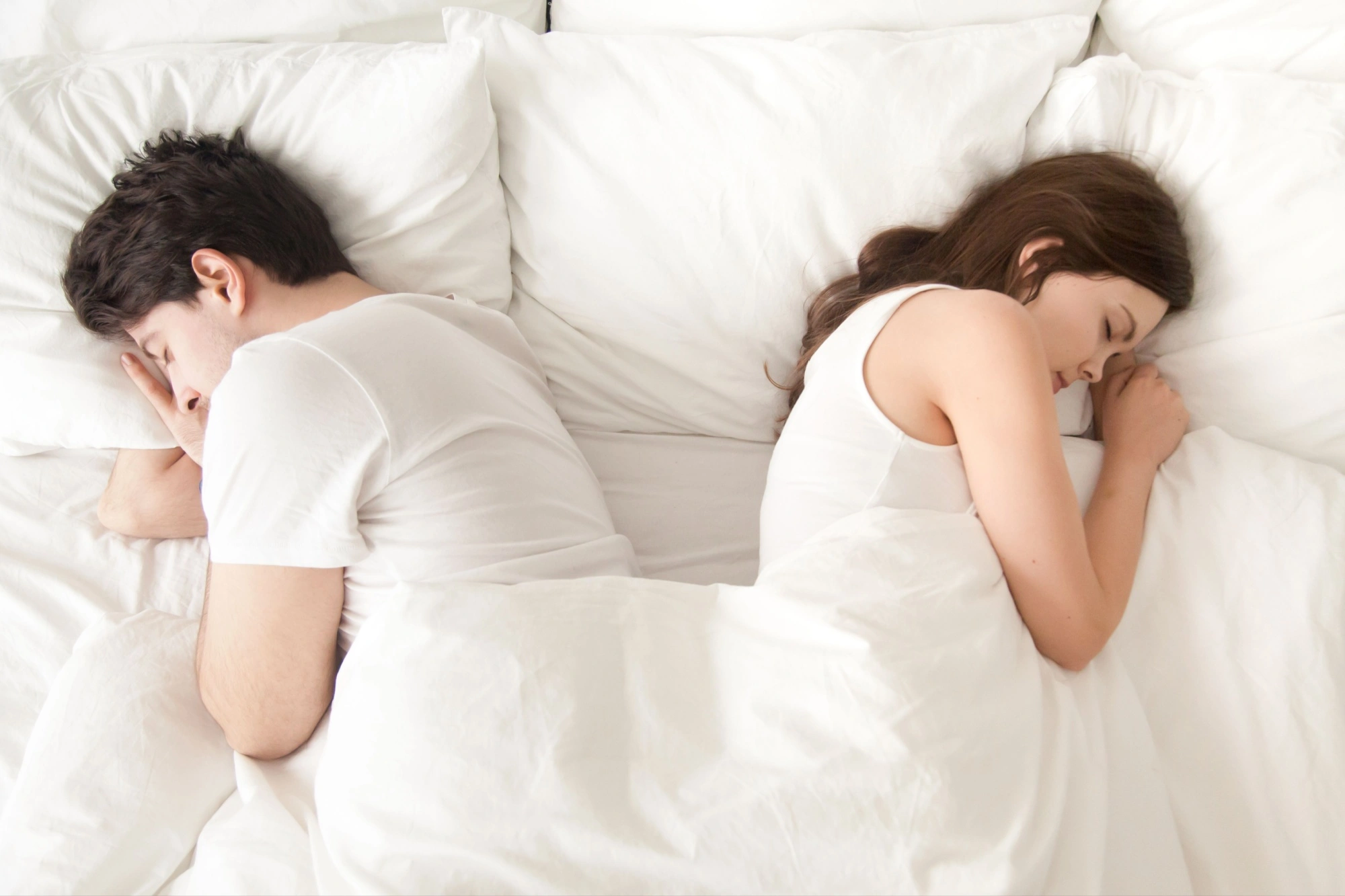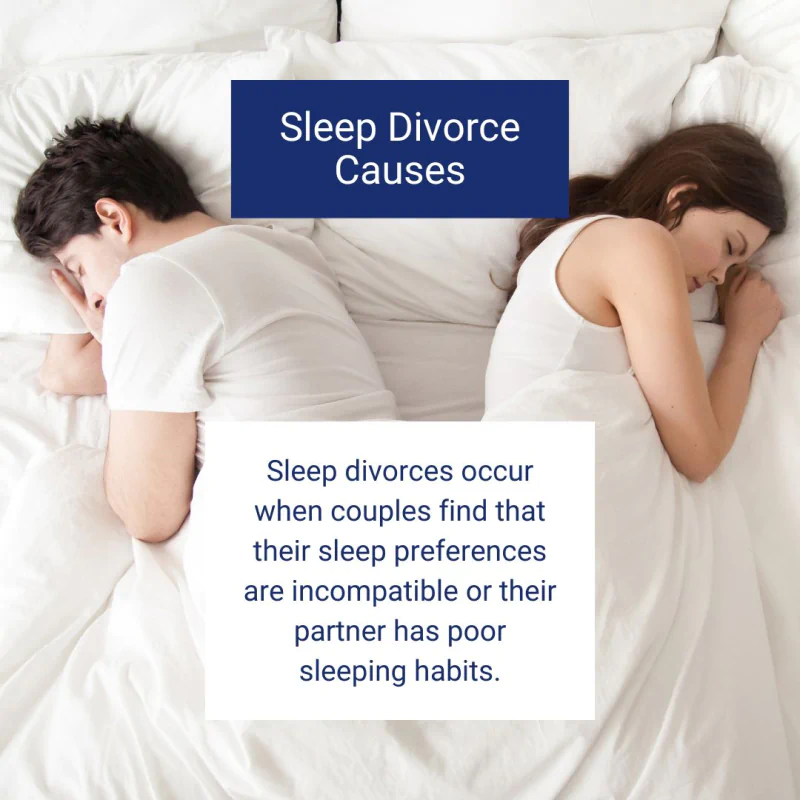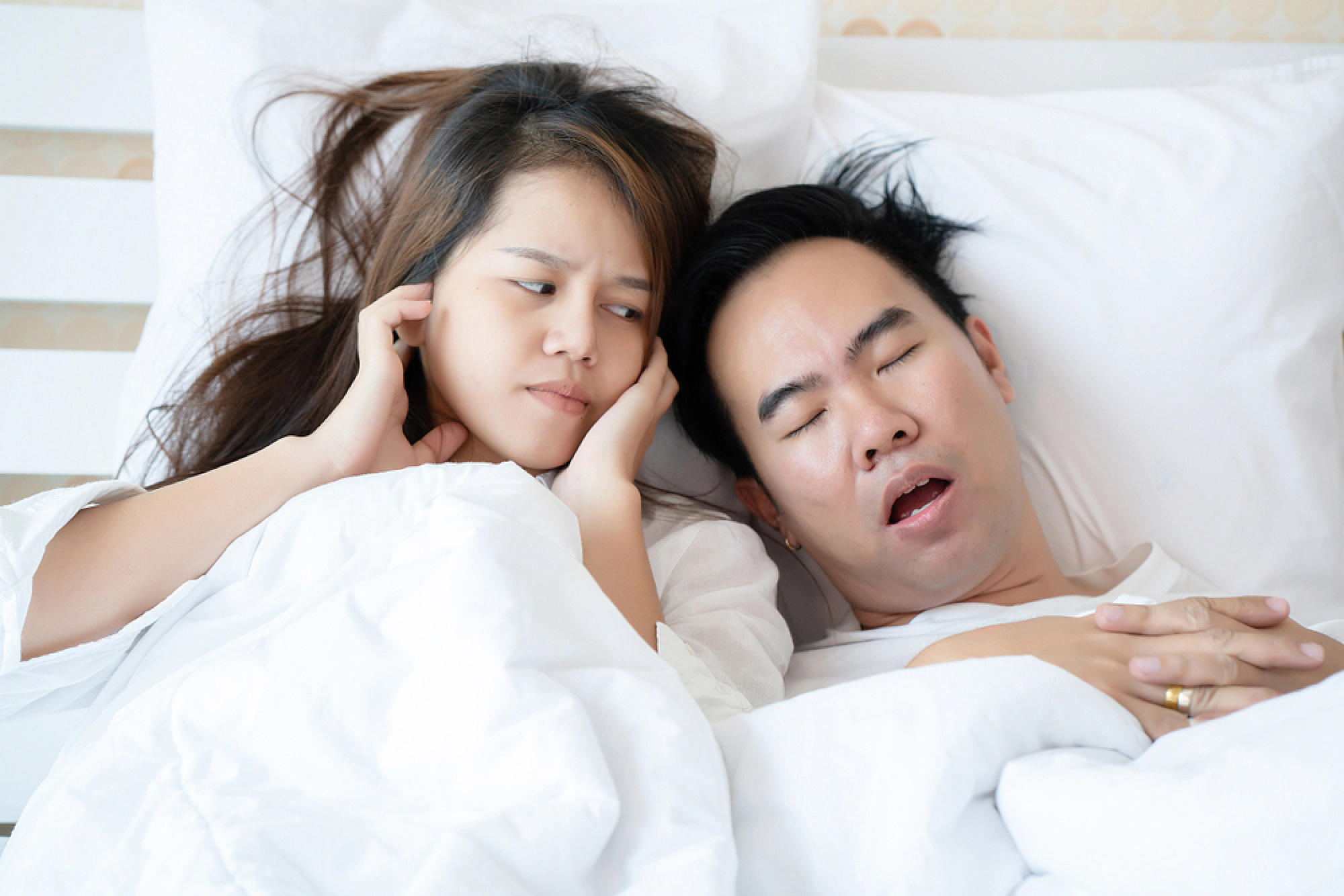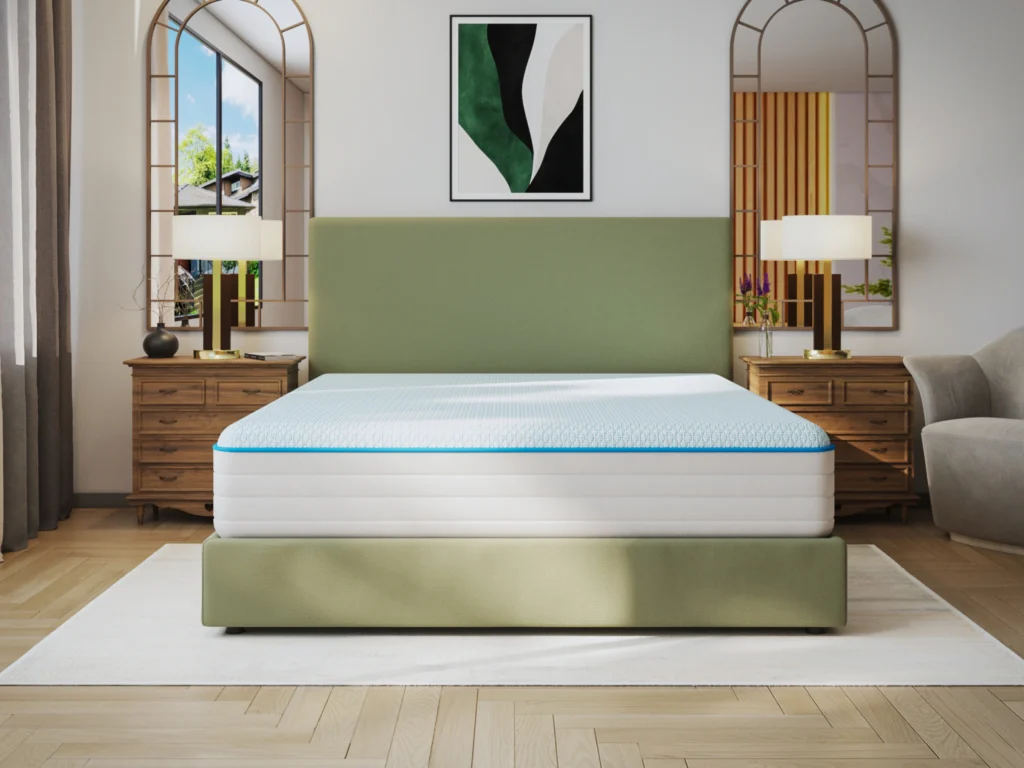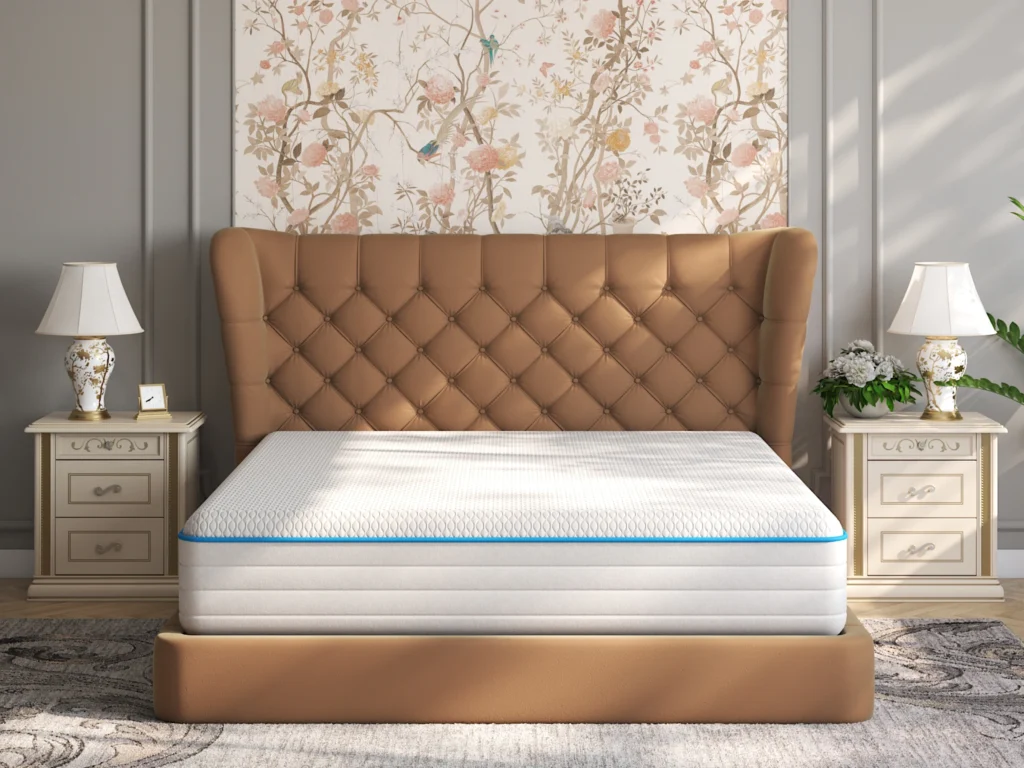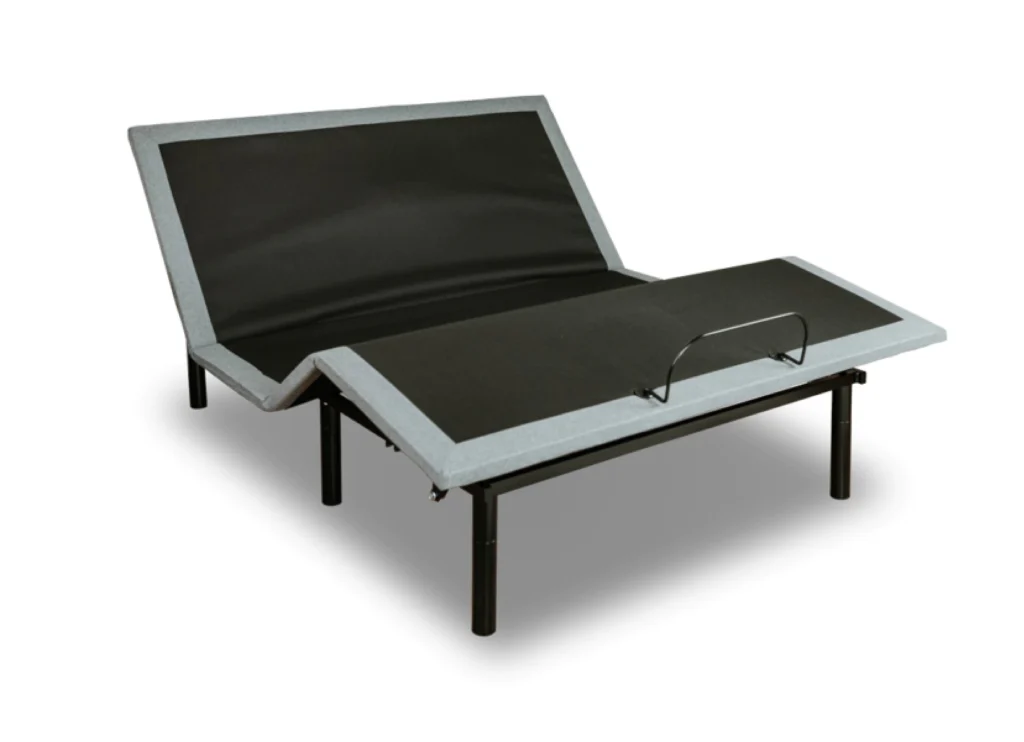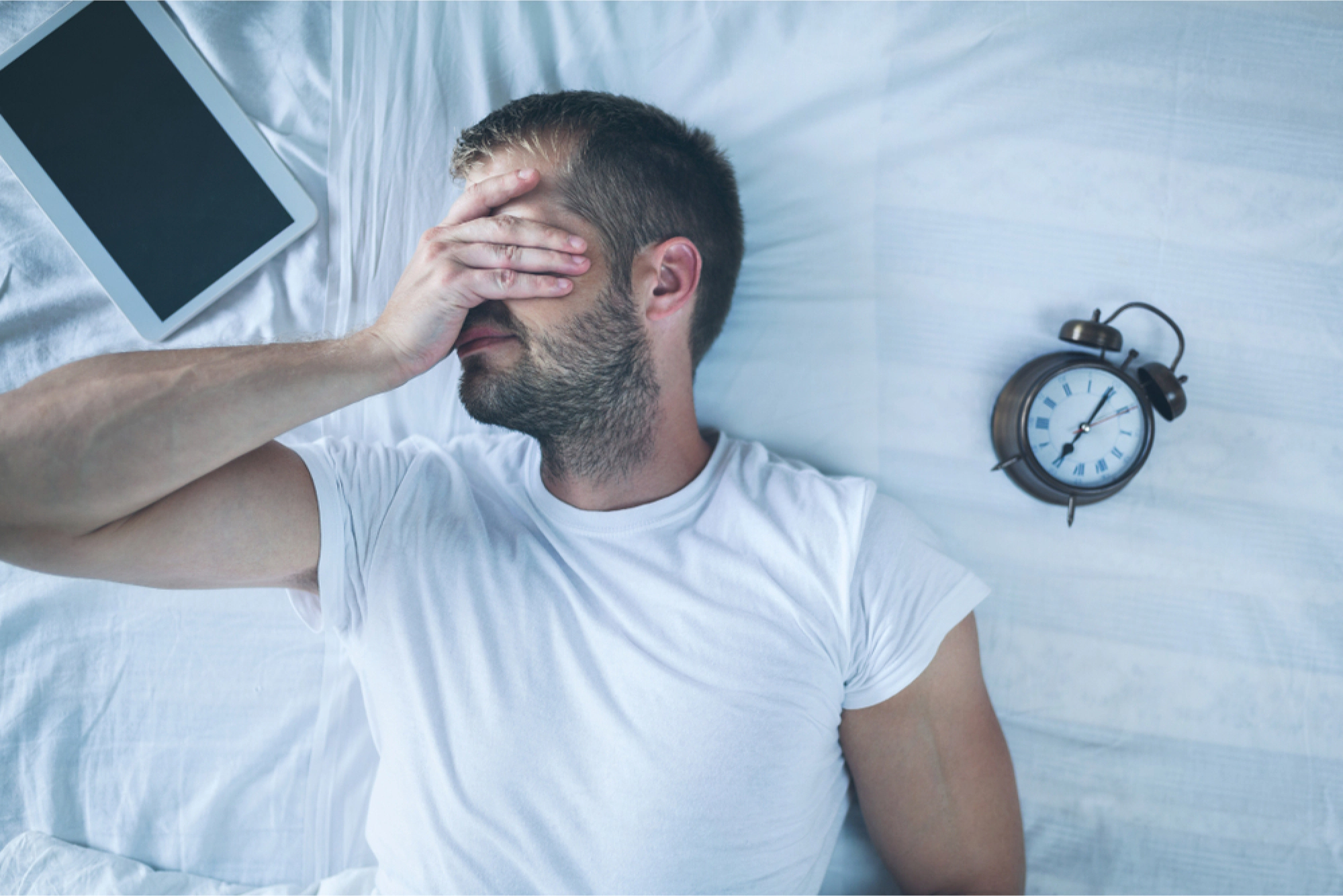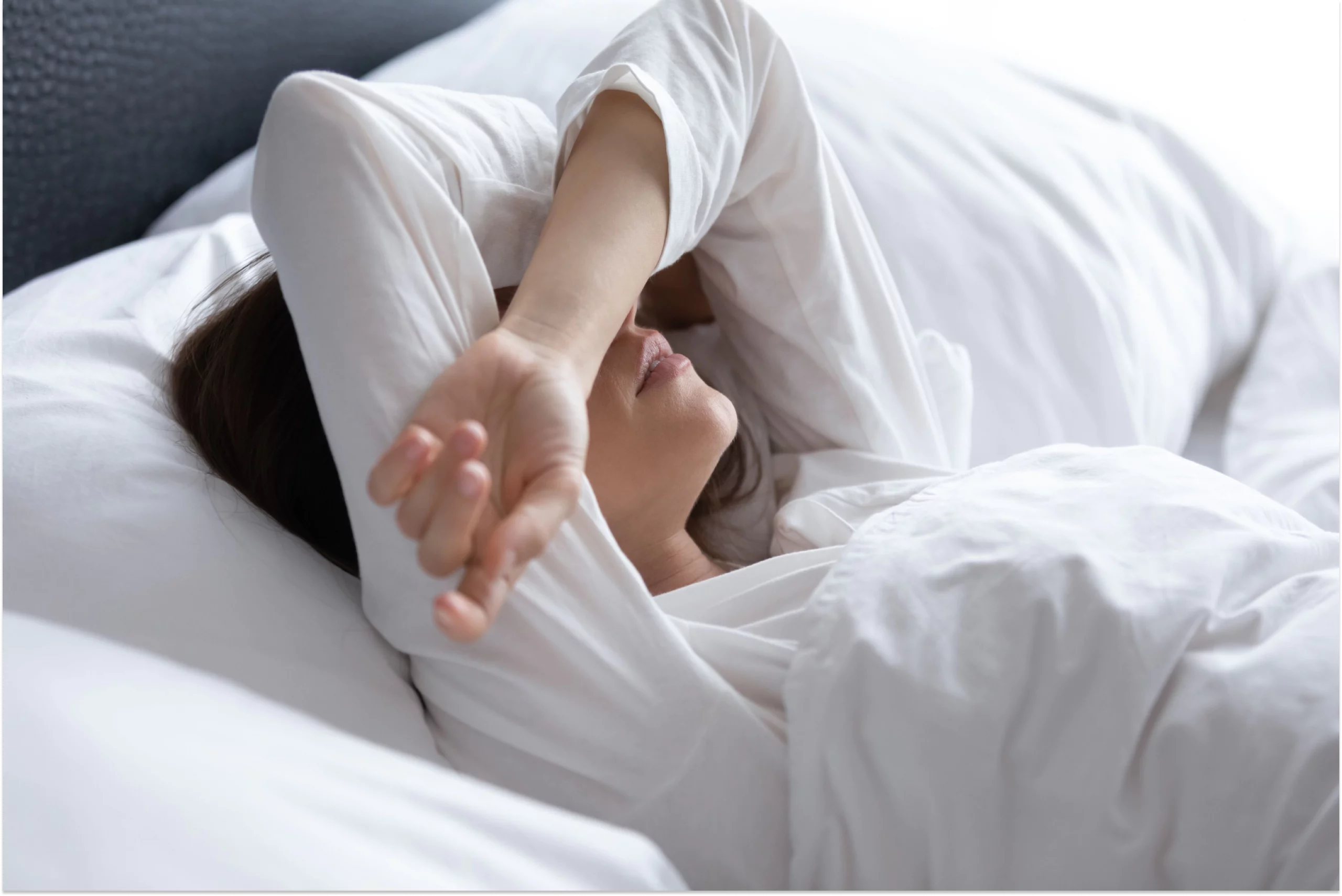
Did you know that sleep and mental health actually affect one another in a number of ways? It’s true! In recognition of Mental Health Awareness Month, we want to explore how getting quality sleep is one of the best things you can do for your mental and overall well-being.
Though the mattress experts at Texas Mattress Makers are not mental health professionals, we do believe that your quality of sleep can impact your quality of life.
How does sleep affect your mental health?
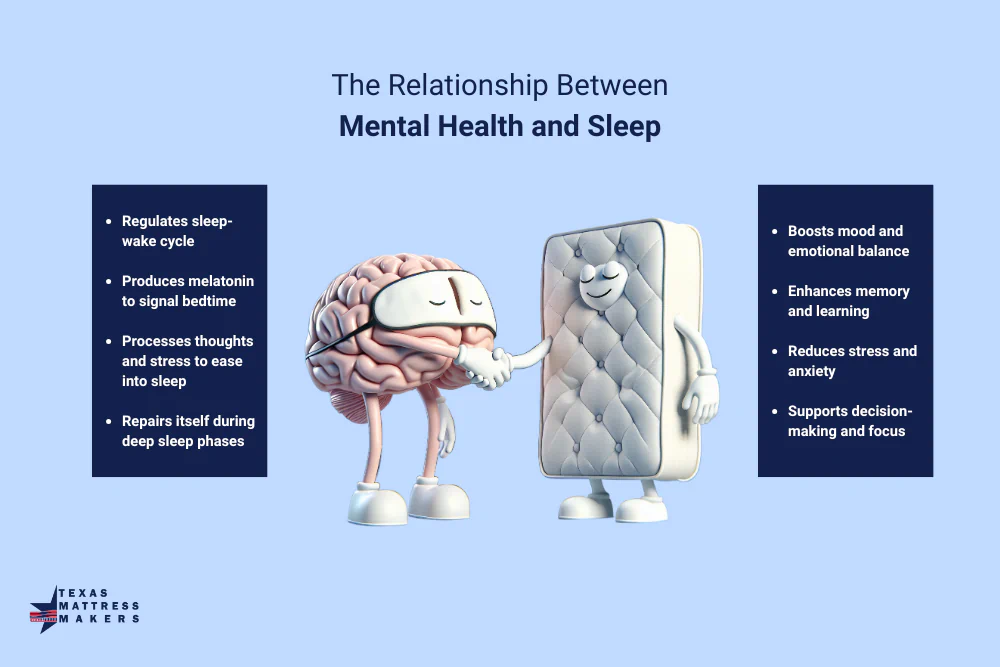
In our article discussing how to get a clear mind for sleep, we shared research that shows how sleeping is beneficial for brain activity. Sleeping gives our brains time to flush out toxins that build up during the day, resetting the levels of many important chemicals and resulting in improved brain function.
Sleep is basically nightly maintenance for your mind, and without that maintenance, your brain won’t be able to function properly.
Symptoms of sleep deprivation
What are the symptoms of not getting enough sleep? Not getting enough sleep can lead to a range of physical, mental, and emotional symptoms that affect your day-to-day life. Some examples include
- Daytime drowsiness
- Lack of energy
- Mood swings and irritability
- Slowed reaction times
- Memory problems
- Trouble focusing
- Poor appetite or increased appetite
- Feelings of weakness
- Poor balance or coordination
- Weakened immune system
Poor sleep is often a result of poor sleep patterns where you may be sleeping too little or too much, or you’re not experiencing deep, restorative sleep each night. Whatever the factors, sticking to a consistent sleep schedule is essential to combating chronic sleep deprivation, which can be disastrous for your physical and mental health.
Does sleeping improve mental health?
Absolutely! Getting quality sleep is one of the best things you can do to support your mental health. During sleep, your brain processes emotions, stores memories, and resets for the next day, helping you wake up feeling balanced and clear-headed. Consistent, restful sleep helps regulate your mood, reduce anxiety, and improve your ability to handle stress.
If you want to reap the many benefits of sleeping, you must ensure you’re resting the right amount. How much sleep is needed for mental health? Your brain and body need roughly 7-9 hours of sleep at minimum to go through their many regenerative processes.
Learn more about how stress and sleep impact one another
Can lack of sleep cause mental disorders?
Yes, it can. Poor mental health is cited as one of the most prominent long-term sleep deprivation effects. The relationship goes hand-in-hand.
Research has shown that those with mental health conditions are more susceptible to sleep disorders like insomnia. On the flip side, according to studies cited in the National Library of Medicine, sleep disruptions can affect the body’s stress system, disrupting circadian rhythms and increasing vulnerability to conditions like depression. While sleep will not cure mental health conditions entirely, it does have a major impact on your ability to manage them.
Oversleeping and poor sleep patterns
Aside from sleep deprivation, sleeping too much has also been found to be harmful to your mental health. What are the side effects of oversleeping? Along with decreased cognitive function and motor skills, oversleeping can contribute to and be a clear sign of mental health disorders such as depression, anxiety, and ADHD.
That being said, if you are someone who struggles with a mental health condition, seeking the proper treatment and developing healthy sleep habits can be effective ways to improve your quality of life.
Expert tip: It’s no secret that feeling restless or stressed before bed can result in a bad night’s sleep. Finding ways to relax before bed, including trying different stretches for sleep, meditating, or even reading, can help your body wind down before you hit the pillow, resulting in improved sleep quality.
The secret to better sleep
Though there are many factors that can contribute to sleep troubles, there is one key factor that many people tend to overlook: their mattress. When it comes to sleeping, your mattress is the most important tool — and if your mattress is of poor quality, you won’t reap any of the benefits of sleep.
Tossing and turning, not being able to fall or stay asleep, or waking up with aches and pains are all signs of a bad mattress. Sleeping on the wrong mattress can result in many sleep problems with lasting effects, including poor mental health. The secret to better sleep is investing in a mattress with high-quality support and comfort components that will suit your specific needs.
Wondering, “What’s the most comfortable mattress for me?” Don’t worry; we can help with that. When you visit a Texas Mattress Makers showroom, we take the time to get to know you and your needs so that together, we can find the perfect mattress for you. A mattress is an investment in your physical and mental health — so don’t sleep on finding the best match.
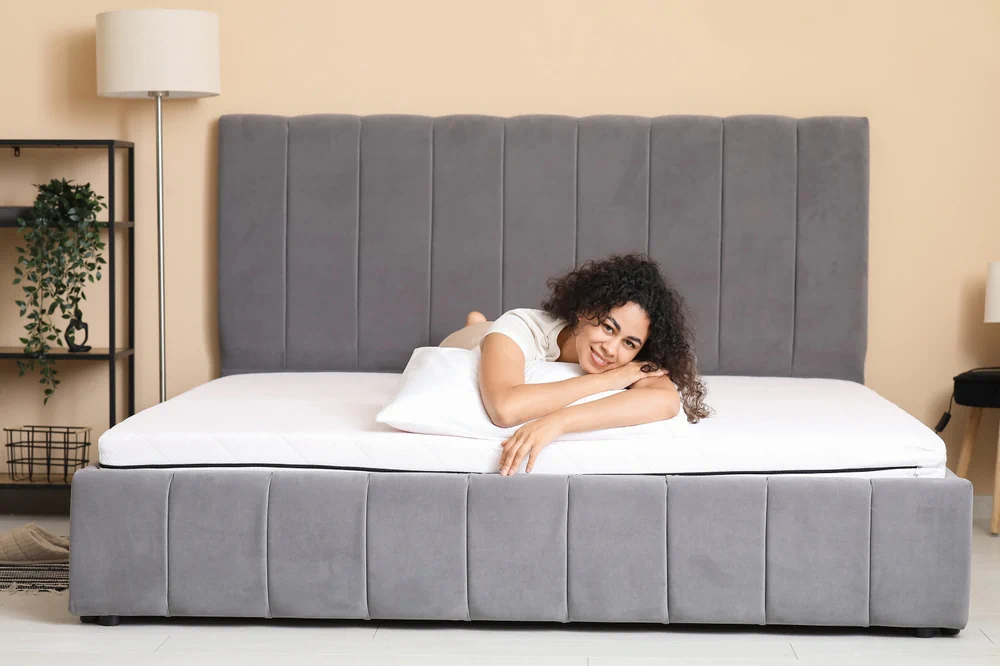
Best Mattresses for Better Prices
Better Mattress, Better Sleep, Better Life with Texas Mattress Makers
Sleep and mental health have a very close and symbiotic relationship — they help each other so that you can live a long and healthy life. Similar to how we use exercise equipment to maintain our physical health, your mattress is an important tool to get the best rest possible for your mental health.
Better sleep starts with Texas Mattress Makers. You can shop our mattress selection online or visit any of our mattress stores in Houston today to try our beds in person. With the help of our experts, poor sleep will be a thing of the past.
More Helpful Articles by Texas Mattress Makers:
- Sleep and Libido: Can Sleep Deprivation Affect Sexual Health?
- Can Lack of Sleep Cause Weight Gain?
- How to Fix Circadian Rhythm
- Can the Right Mattress Treat Insomnia?
- What is the Relationship Between Sleep and Exercise?



